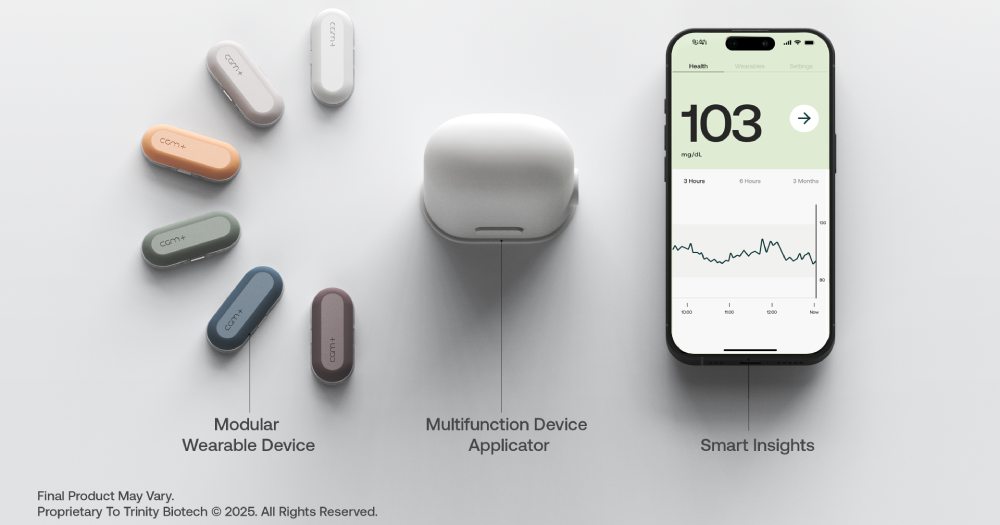Irish company launches next-generation wearable biosensor platform

The folks at Ireland-based Trinity Biotech have always had their hands deep in the diagnostics game — but now, they're going bigger, bolder, and a whole lot smarter. This week, the company pulled back the curtain on CGM+, its brand-new, AI-native wearable platform designed for more than just keeping tabs on blood sugar. Think of it as a health command center on your arm. With the global wearable AI market steaming toward a projected $260 billion, Trinity's aiming straight at the sweet spot: the intersection of chronic disease management, real-time wellness tracking, and AI-powered insight.
"We're not just adding a product — we're building a scalable platform," said CEO John Gillard. And with CGM+, he might be right on the money.
How does it work?
CGM+ is no one-trick pony. At its core is a sleek, modular sensor — needle-free and ultra-thin — that doesn't just monitor glucose. It also keeps a running log of:
- Heart activity
- Body temperature
- Physical movement
This isn't just more data for data's sake. Trinity's tech syncs all of it in real time, handing it over to an AI system that crunches, contextualizes, and delivers insights on the fly. Imagine getting personalized feedback on how your stress, sleep, or workouts are affecting your glucose levels — while you're living your life, not after the fact.
"CGM+ is not just a device — it's a proprietary data engine we are building for the AI health ecosystem," said Gillard. That engine, by design, feeds both medical-grade diagnostics and consumer wellness applications.
Why does it matter?
Let's be real: most CGMs today feel like relics from the early 2010s. They're focused on just glucose, they require frequent disposable components, and they don't talk smartly with the rest of your health data. CGM+ wants to flip that script:
- Fewer disposables = less waste and lower cost
- More data streams = deeper health insights
- AI smarts = predictive and personalized coaching
That's a big deal when healthcare's shifting fast toward precision medicine, real-world data, and preventative care. As Gillard puts it, "We believe this technology can power the next wave of personalized, predictive, and preventative care."
In other words, this isn't just about managing disease — it's about staying ahead of it.
The context
Let's zoom out for a sec.
- The CGM market alone is set to more than double in five years — from $13.28B in 2025 to $28.72B by 2030
- AI in healthcare? Forecast to reach a jaw-dropping $200B by 2030
- And wearable AI is pacing at $260B+ by 2032
That's a tidal wave of growth — and Trinity is paddling hard to catch it. With CGM+ expected to hit the market in mid-2026, the company's banking on more than just device sales. Think AI-driven health subscriptions, partnerships with insurers and digital health platforms, and even licensed data models.
They've also just wrapped another pre-pivotal trial of their upgraded glucose tech, with findings due out soon. That could be the clincher — or at least the confidence booster — for investors and clinicians watching closely.
As wearables evolve from fitness fads to full-blown health tools, CGM+ might just be the first one that talks like a doctor and thinks like a data scientist. And for Trinity, that's a bet worth making.
💡Did you know?
You can take your DHArab experience to the next level with our Premium Membership.👉 Click here to learn more
🛠️Featured tool
 Easy-Peasy
Easy-Peasy
An all-in-one AI tool offering the ability to build no-code AI Bots, create articles & social media posts, convert text into natural speech in 40+ languages, create and edit images, generate videos, and more.
👉 Click here to learn more


